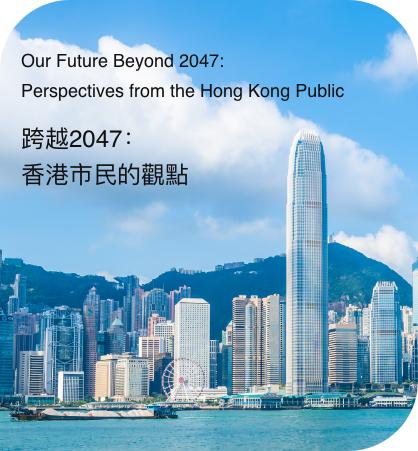Policy Advocacy
Perspectives from the Hong Kong Public
The anti-extradition movement and its aftermath fuelled public fear and mistrust in and around the integrity of “One Country Two Systems” (1C2S). However, public surveys also suggest a growing support for the continuation of 1C2S beyond 2047. It is difficult to reconcile the fact that despite what appeared to be a marked decline in confidence, Hong Kongers still overwhelmingly indicated that they were in favour of the continuation of the same beyond 2047. The result points to one important point of strain in the Hong Kong-Mainland relations, namely, a mismatch of expectations on the question of what makes 1C2S work. This study uses a futurological paradigm to approach the pragmatic question of how Hong Kong should continue beyond 2047. Big data analytics was employed to examine media content from 1998 to 2020 to identify subjects of concerns that the narrative focused on, focus group discussions with 50 participants spanning across different age groups and a telephone poll of 1,003 randomly sampled individuals were conducted to portray popular sentiment underlying the re-emergence of the “future problem”. We found that the general consensus is for 1C2S to continue but deeper involvement of Hong Kongers in the negotiations is desired by many. Our evidence shows that while the general public is not optimistic toward the future of Hong Kong, the solution to this dissatisfaction is also clear: resilience building, socio-politico-economic reform, and deeper participation of Hong Kongers in a potential negotiation for the post-2047 arrangement.
This research project (Project Number: SR2020.C19.001) is funded by the special round of the Public Policy Research Funding Scheme from the Policy Innovation and Co-ordination Office of The Government of the Hong Kong Special Administrative Region.


 EN
EN Login
Login Donation
Donation
